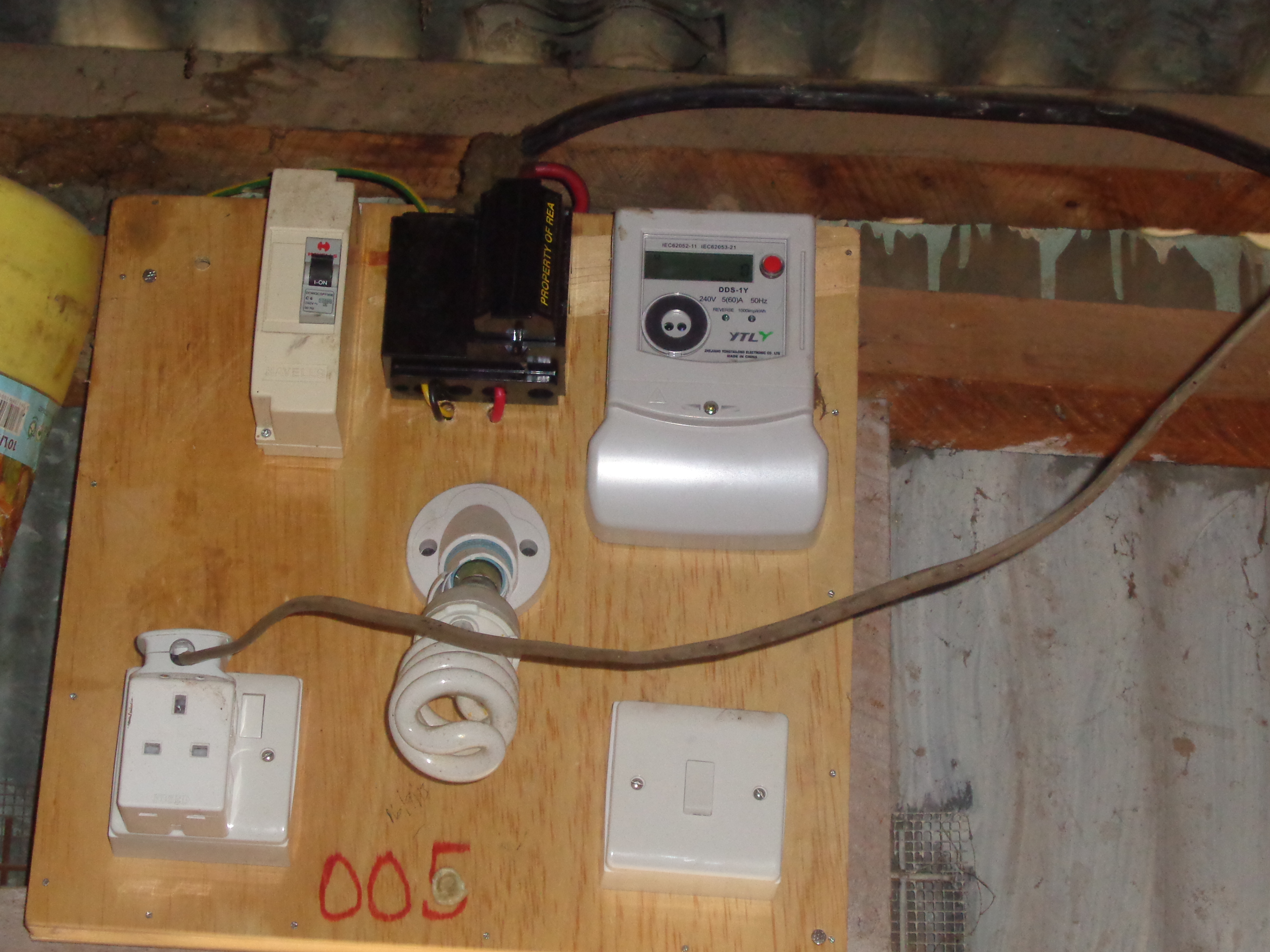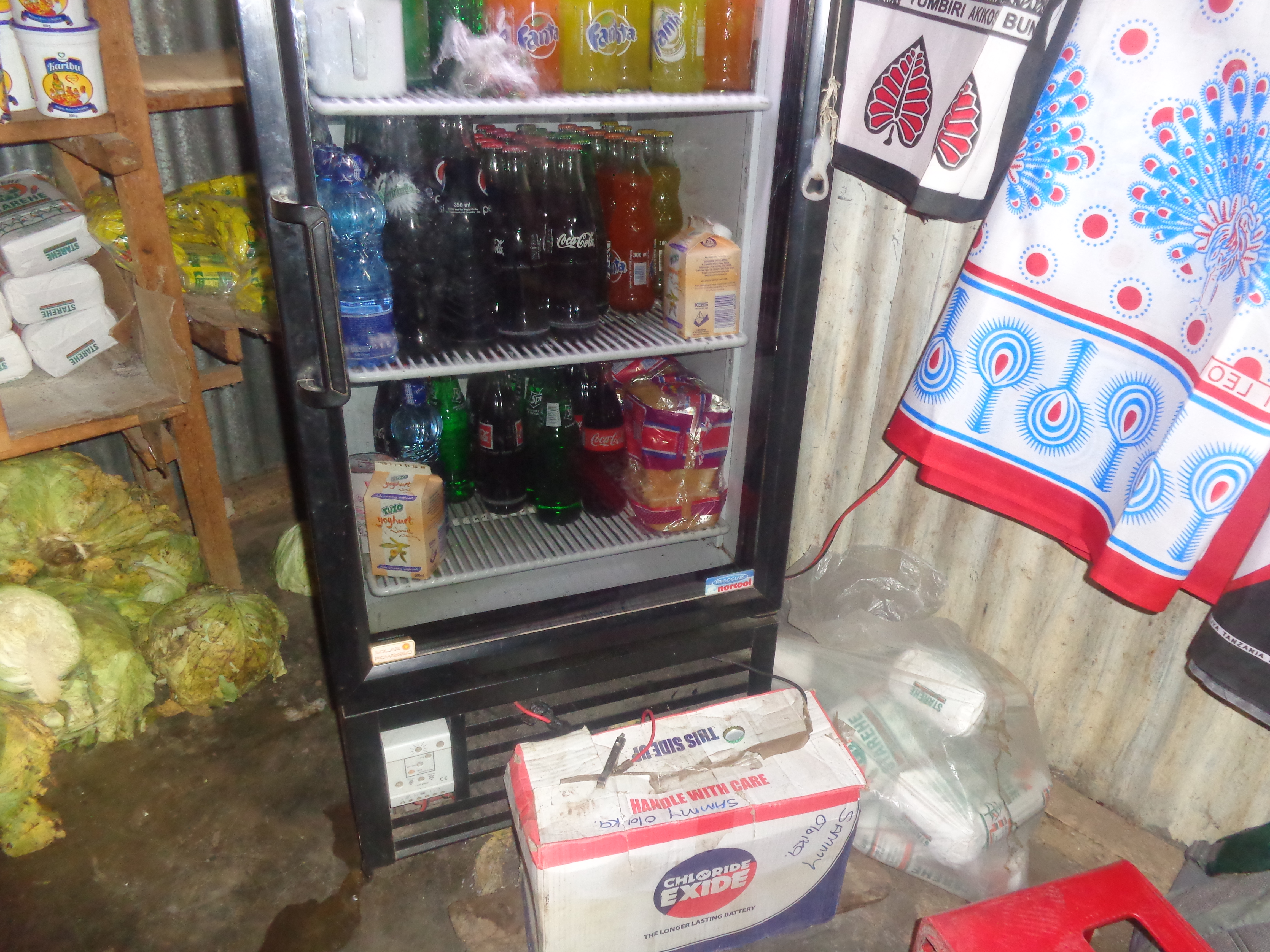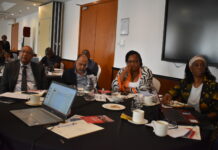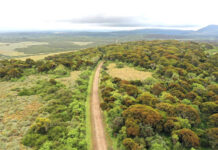By Fred Deya
In an area synonymous with long dry spells that cannot support meaningful farming, it is hard to imagine locals are in investing their hard earned cash in solar energy instead of going for basic requirements such as food.
The women from Wote, in Makueni County are going against the grain by investing solar energy and lighting their villages.
One such family is that of Margaret and her husband, who have beaten all odds to emerge better farmers in the area through practicing commercial farming.
The pair are practicing commercial farming whereby they grow vegetables, maize and bananas, an exercise that has for a long time helped them with reliable food for their family as well as raise cash to send their older children to boarding school.
Out of her intelligence, Margaret had a second thought about the expenditure of her income.
Raised from her monthly sacco contributions (merry-go-round), the middle aged mother of five received her unusual pay-out of KSh 50000 ($ 500) on her turn then decided to take on a few homes advanced projects:
Putting up a solar panel was her first projects ideas. For that matter, she purchased a solar panel, battery, inverter and enough wire cables that could accommodate her house. This costed her a clean KSh 37000.
“I would have preferred a grid connection from national electricity transformer but my home is too far from these electricity lines and we do not know whether it will pass near us any soon”, narrates Isabella, adding that the project was thoughtful because it is destined to help even other villagers near her home.
The solar panel at Margaret’s home is enough to light her entire home, charge phones and helping his children to extend their personal studies at night.
Talking to us from her home, the happy mother said that she is impressed with investment because it has barred her from daily routine of buying kerosene that is not only expensive but as well life hazardous.
According to Makueni farmer, she has been saving an estimated over Ksh 1000 monthly since the installation of the solar panel, the amount of money she is using for other home necessities.
Isabella acknowledged the value of solar because her saving plan is phenomenal and ready to install more in the near future for commercial purposes.
Betty who is one of the project associates applaud the solar investment idea whereby she also bought an M-KOPA unit for a deposit of Ksh 3500 ($35) and Ksh 50 monthly deposit, a one-year spree that has enabled her to collect a total of over Sh 21000 ($210) until now.
Betty is using her solar power units to power small shop that she runs in a rural area outskirt of Eldoret (one of the towns in Kenya’s rift valley region). At her shop the solar power helps her with many things apart from lighting including charging of customers phones at her shop.
According to Betty, there is no problem in terms of lighting his house, saying “my children in school have no problem conducting their personal studies at home from school. This is what I had for a while needed to establish in my life because I have got no lump sum to collect to national electricity grid”, said hard working mother.
Betty gets extra income from her shop of about Sh 3000 monthly the money that comes from solar power services.
The dozens of ambitious women started by initiating finance raise platform known as Kenya Financial Dairies back in 2012 whereby almost 70 percent of their correspondent household could hardly access clean energy but use paraffin as main source of lighting.
Isabella who is one the group pioneers and the group leader said that the village dwellers from Makueni’s Wote had it rough during night and day time because smoky wick lamps had to be moved around the house to places it is needed as people walk long distances to go and charge phones.
According to report released by IDS in 2015 on its evidence report number 135 that identified the trend of electricity or green energy connection in Kenya, only 50 percent of Kenyans access electricity connection as a large number of Kenyan of 80 percent still lack access to electricity.
In Makueni County, the report stated that less than 30 percent of urban dwellers in the County are connected to green energy as distance low number of rural population of bellow 5 percent are connected.
Therefore, this implies how Kenya rural is still in agony of electricity connection amid national government involvement to reduce the problem.
Until this year 25 households had been connected whereby other villagers without connections benefit, either directly or indirectly.
The connected households were advised to buy M-KOPA units for smooth pay off of solar investment. Today these women run solar power through the installed wires for solar panel connection as they still hope to be connected to main grid in future.















